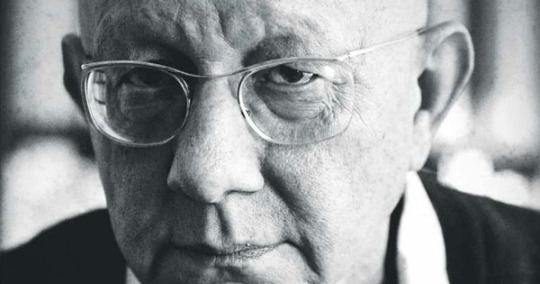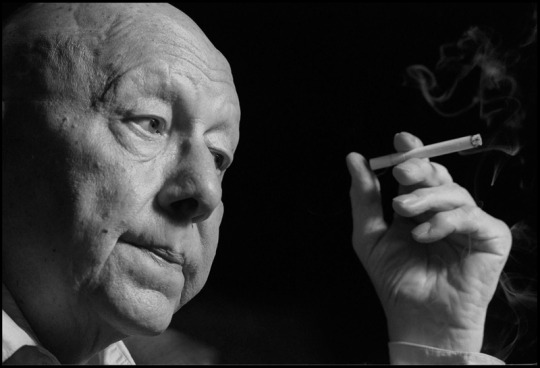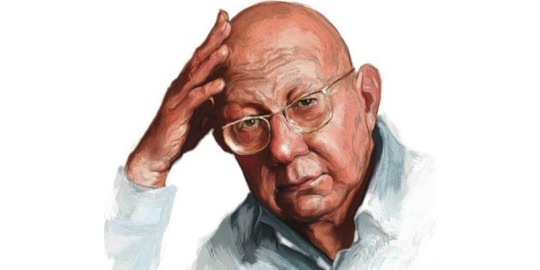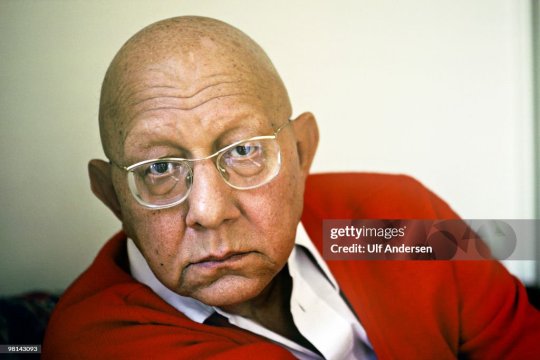#cornelius castoriadis
Text
The Greek view is
expressed as early as the myth of Pandora. For Hesiod hope is forever
imprisoned in Pandora's box. In pre-classical and classical Greek religion, there is no hope for an afterlife: Either there is no afterlife, or if
there is one, it is worse than the worst life on earth - as Achilles reveals
to Odysseus in the Land of the Dead. Having nothing to hope from an
afterlife or from a caring and benevolent God, man is liberated for action and thought in this world.
Cornelius Castoriadis, 'The Greek Polis and the Creation of
Democracy' (1983)
2 notes
·
View notes
Text
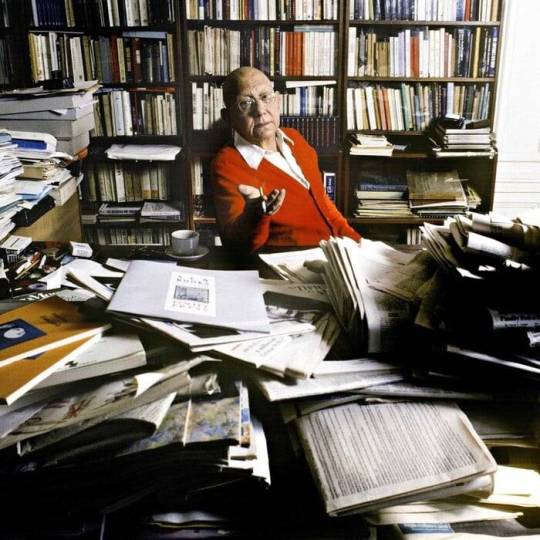
Cornelius Castoriadis
3 notes
·
View notes
Text

«El papel creador radical de la imaginación de los sujetos está en otro sitio: consiste en su aportación a la posición de formas-tipo-eidé distintos que los que ya existen y valen para la sociedad, aportación esencial, ineliminable, pero que presupone siempre el campo social instituido y a los medios que proporciona, y que solo se convierte en aportación (algo distinto del ensueño, la veleidad o el delirio) en tanto es socialmente retomado bajo la forma de modificación de la institución o de posición de otra institución. Las condiciones de esta reconsideración, no sólo “formales”, sino también “materiales”, superan infinitamente todo lo que la imaginación individual puede suministrar».
Cornelius Castoriadis: La institución imaginaria de la sociedad. Tusquets, págs. 416-417. Barcelona, 2013.
TGO
@bocadosdefilosofia
@dies-irae-1
#cornelius castoriadis#castoriadis#la institución imaginaria de la sociedad#imaginario social#imaginación radical#imaginario social radical#imaginario social tercero#imaginario social efectivo#institución#imaginarios#campo social#campo social instituido#teo gómez otero#imaginación
2 notes
·
View notes
Text
« «Ce qui est n'est pas clos, du point de vue le
Plus essentiel
Ce qui est ouvert, est à être» - Cornelius Castoriadis» » - Stereolab
3 notes
·
View notes
Photo

https://archive.org/details/1809f10a-d0e3-4481-8f96-cca7f240d656/mode/2up
In the face of rising authoritarianism and on the heels of urgent struggle, autonomy calls to us. How might we excavate the theory and history of autonomous politics to arrive at new possibilities for radical democracy and the radical imaginary? How can we rethink the ways in which artistic autonomy is theorized and practiced beyond the shrunken horizon of liberal individualism? How might we understand political and artistic autonomies as linked, rather than diametrically opposed? And what role does radical pedagogy have to play in all of this?
Framed by the thought of Cornelius Castoriadis, and engaging with Marxist, Black Radical, and Feminist approaches to liberation, as well as movements such as Occupy, Black Lives Matter, Me Too, Letters on the Autonomy Project understands autonomy to be the capacity of a society, a community or an individual to modify its form. As Castoriadis argues, the struggle for self-determination requires unlimited questioning of the way things are, but also that we do or make something new in light of this interrogation. Autonomy is thus equally a project for thought, for education, for politics, and for art.
1 note
·
View note
Text
Thomas Malthus, who is often interpreted as arguing for population control to overcome economic limits, actually invoked the threat of limits to advocate for growth, arguing that scarcity is a natural fact, and that only a growth-based economy could overcome it. In this way, Malthus was one of the first ‘apostles of growth’. Since then, both neoclassical economists and elites sought to further cement the idea that growth is needed to overcome natural scarcity as common sense. But scarcity is not a natural fact. Rather, scarcity, as well as the social hierarchies that limit autonomy and self-determination, are imposed by a capitalist system of production. As a corollary, degrowth is not about imposing limits on society according to natural scarcity, but about regaining autonomy to collectively create public abundance, and also deliberate and set limits. And this – collectively setting limits – is a key prerequisite for the formation of autonomous, democratic governance, as the Greek philosopher Cornelius Castoriadis argues in his work. Indeed, it is precisely capitalism – through alienating us from each other and from the abundance of the earth – which undemocratically imposes limits on us and makes it impossible for us to set our own. Thus, just as degrowth is about the collective reappropriation and dépense of social surplus, it is also about the rejection of natural scarcity, the undoing of imposed limits set on us by capitalism and hierarchy, deliberating collective limits, and thus about creating a self-determined post-scarcity society.
The Future Is Degrowth: A Guide to a World Beyond Capitalism
112 notes
·
View notes
Note
im looking forward to studying Modern Greek language and culture at university, and simply love your blog. i have fallen in love with this mysterious beauty! which parts of Greek culture, whether it be literature, art, history, schools of thought, anything at all, would you recommend me to look at in further depth? something less talked about, or more niche perhaps? much love x
Ohhh wishing you the best in your future studies! Hoping you will have a great time!
Some recs of things I personally enjoy from the Modern Greek culture, they are subjective, I have mentioned most before, so I am technically playing the broken record again!
Entechno, Rembetiko and classic Laiko music genres. Check the composers Mikis Theodorakis, Manos Hatzidakis, Markos Vamvakaris, Vassilis Tsitsanis and Stavros Xarhakos as a start. But I doubt you won’t learn about them through your studies anyway.
Domenikos Theotokopoulos (El Greco) is my favourite artist but a lot of modern(er) Greek art is very interesting actually
Alexandros Papadiamantis, Nikos Kazantzakis in literature
Erotokritos, both the poetry and the music and all its folk impact
Odysseus Elytis, Giannis Ritsos, Constantine Cavafy and Nikos Kavvadias poetry
I can’t not say the Greek Revolution but I doubt you can escape it in your studies anyway. Also the Axis Occupation Resistance, the Pontic Greek genocide and the population exchange with Turkey. But you will learn about all this, I believe. Check also about the civil war, which I am not sure they will teach you about at length. And the military junta.
Ioannis Kapodistrias and Eleftherios Venizelos as political profile studies. Check out those of Konstantinos Karamanlis and Andreas Papandreou as well if you are interested in politics, not because they were anywhere near as great as the former two but to explore the unbelievable impact they still have in Greek society.
Doesn’t matter if you are Christian or not, I really like Byzantine ecclesiastical music and architecture from an aesthetical standpoint so I recommend
Byzantine and Modern Greek folk fashion
Check out Georgios Gemistus Plethon, the Byzantine Greek Neoplatonic philosopher
Would I deviate if I just said Byzantine history? Oh well. It’s fascinating to explore the “relics” of Byzantium in the collective Modern Greek conscience.
Easter and Carnival traditions, their origins, historical evolution and practice today
Golden age cinema comedies (50s - 70s)
Watch the Island once you can understand Greek well (if you don’t already) or find English subtitles. It’s such a perfect and accurate window to Greek ethos in the first decades of the 20th century
Watch TV comedies of the 90s and 00s.
That might be harder to explore but I like the significance of Epitheórisi (Revue) as a theatrical genre in Greece. In general, check the tradition and huge presence of satire and satire comedians in Modern Greek society. Political correctness has made satire shrink drastically but I think it has an interesting history throughout the 20th century and first years of the 21st.
If you are interested in a school of thought, check out the work of the philosopher Cornelius Castoriadis (1922-1997)
If you don’t speak Greek yet, some of the recs are more niche than others and you will probably have to wait to be somewhat fluent in Greek before you can explore them properly. But music, art, philosophy… you can start with these. As for the history, you can also start, but make sure to also read Greek historiography once you know Greek better because… well.
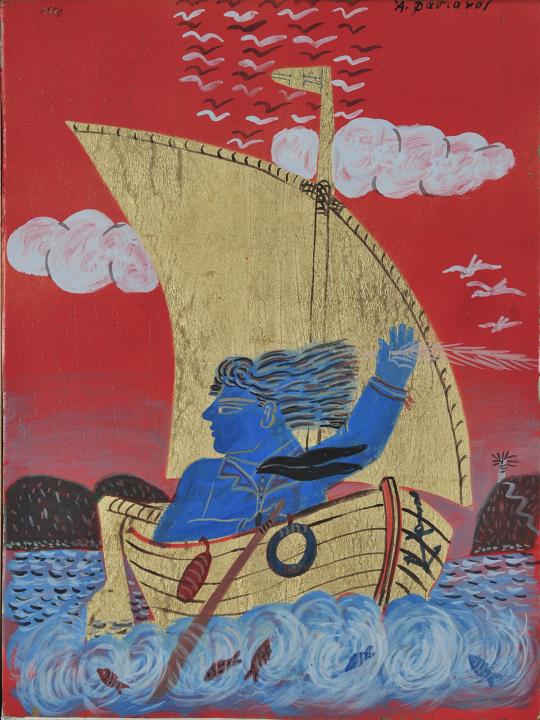
77 notes
·
View notes
Text

"Qu’on puisse ainsi se sentir idéologiquement obligé de traduire le terme anglais de "Tory" – c’est-à-dire de "conservateur" – par celui de "travailliste"[…] montre à quel point l’intelligentsia libérale de gauche a décidément toujours autant de mal à accepter l’idée (que défendaient pourtant, entre autres, William Morris, Pasolini, Camus, Marcel Mauss, Paul Goodman, Walter Benjamin, Piergiorgio Bellocchio, Günther Anders, Guy Debord, Jaime Semprun, Cornelius Castoriadis, Christopher Lasch ou encore Simon Leys) selon laquelle le combat pour une société socialiste décente intègre nécessairement et par définition un "moment conservateur"."
Jean-Claude Michéa, Extensions du domaine du capital, 2023.
2 notes
·
View notes
Text
babygirl why don't we take this to my place and watch Cornelius Castoriadis interviews on youtube
8 notes
·
View notes
Text

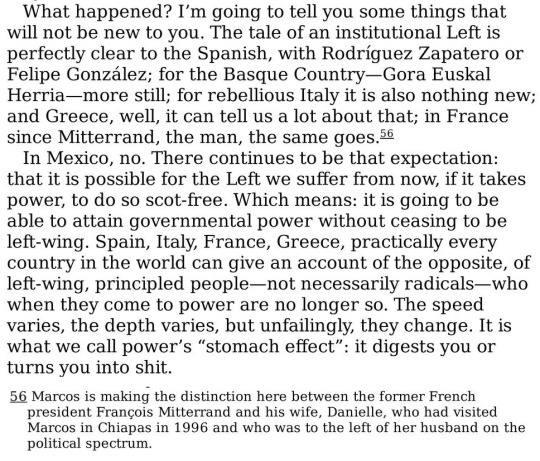
From Subcommander Marcos's Words for the National and International Caravan for Observation and Solidarity with Zapatista Communities in The Zapatista's Dignified Rage.
In this speech, Marcos gives a brief history of the Zapatistas' political evolution from focalism to Zapatismo through their experiences training in the Lacandon jungle living alongside the Maya people there. Here he's articulating the Zapatista critique of the institutional Left through a concept he refers to as 'power's "stomach effect"'.
Other books focusing in on similar or adjacent criticisms of what's referred to as the "institutional Left" are:
Patriarchy and Accumulation on a Global Scale by Maria Mies
Black Marxism and the Black Radical Tradition (https://files.libcom.org/files/Black%20Marxism-Cedric%20J.%20Robinson.pdf) by Cedric Robinson
Degeneration and Revolution: Radical Cultural Politics and the Body in Weimar Germany by Robert Heynen
The Imaginary Institution of Society (https://files.libcom.org/files/57798630-Castoriadis-The-Imaginary-Institution-of-Society.pdf) by Cornelius Castoriadis
Pan African Social Ecology by Modibo Kadalie
Workers' Self-Management in the Caribbean by Joseph Edwards
2 notes
·
View notes
Text
Toplum, kurumlandıran imgelem alanının yapıtıdır. Bireyler, aynı zamanda kendilerinin de sürekli yaptığı ve yeniden yaptığı, her seferinde kurumlandırılan toplum tarafından yapılırlar
Cornelius Castoriadis
2 notes
·
View notes
Text
Cornelius Castoriadis/ Chris Marker - Une leçon de Démocratie sur Vimeo
vimeo
0 notes
Text
“Marx participa de forma integral del imaginario capitalista: para él, como para la ideología dominante en su época, todo depende del crecimiento de las fuerzas productivas. Cuando la
producción haya alcanzado un nivel suficientemente elevado, se podrá hablar de una sociedad verdaderamente libre, verdaderamente igual… No se encuentra en Marx ninguna crítica de la técnica
capitalista, en la forma de técnica de la producción o en la de tipo y naturaleza de los productos
fabricados. Para él la técnica capitalista y sus productos son parte integrante del proceso de
desarrollo humano. Además, no critica la organización del proceso de trabajo en la fábrica. Aunque critica algunos aspectos ‘excesivos’, esa organización en tanto que tal le parece una realización de la racionalidad en sentido estricto. La esencia de sus críticas remite a la utilización que se hace de esa técnica y de esa organización: sirven únicamente al capital, en lugar de servir a la humanidad entera.
No aprecia que es preciso realizar una crítica interna de la técnica y de la organización de la
producción capitalista”
Cornelius Castoriadis.
1 note
·
View note
Text
Sobre la incertidumbre
El obsesivo enfoca su mira en un objetivo y le da vueltas, una y otra vez al asunto, para determinar al menos 10 caminos, cada uno con un nivel diferente de dificultad, que le permitan alcanzar su meta. La necesidad de control y la fascinación por el objeto deseado hacen que la incertidumbre se conciba como una sensación terrible de fracaso, angustia y miedo, muy parecida a la experiencia de caer en el fondo de un agujero negro. En todo caso, es lógico que el obsesivo huya de la incertidumbre y prefiera abrigarse bajo el ala de la tradición y la costumbre. Pese a ello, es necesario recordar que la incertidumbre, así como provoca incomodidad, trae consigo gratas sorpresas. El ser humano, y sobre todo el obsesivo, cuenta con una imaginación pobre que se extiende gracias a lo que brinda la incertidumbre.
Según Edgar Morin, existen dos tipos de ignorancia: la ignorancia que tiene alguien que no sabe, pero quiere saber y la ignorancia que tiene alguien que cree que el conocimiento es un proceso lineal y acumulativo en el que se avanza hacia la luz donde antes había oscuridad. Para el autor, la segunda acepción es peligrosa, pues, el investigador que se la apropia, avanza con pasos agigantados bajo la confianza de distinguir con nitidez lo claro de lo oscuro, sin reconocer que la luz produce sombras. Esa seguridad fundamentada en una ilusión, le permite ejercer el poder que le concede un dogma disfrazado de saber verdadero. Por otro lado, desde el paradigma de la complejidad, se asume que para conocer algo es necesario partir del seno de la ignorancia, la incertidumbre y la confusión, por lo tanto, para dedicarse a la investigación es preciso generar un músculo que le permita al investigar caminar permanentemente en la oscuridad y la incertidumbre
Resulta imposible encontrar una fórmula univoca que permita evadir la incertidumbre, por eso, hace sentido que Morin nos recomiende generar musculo con el fin de aceptar lo que sea que llegue. Al fin y al cabo, nuestra misma existencia es un acto de, entre otras cosas, el azar pues, como dice Cornelius Castoriadis, "ni la política democrática en los hechos, ni la filosofía en las ideas pueden evidentemente suprimir aquello que, desde el punto de vista del ser humano singular o incluso de la humanidad en general, aparece como el azar radical, haciendo así que haya ser, que éste se manifieste como un mundo, que en este mundo haya vida, en esta vida haya una especie humana, en esta especie una cierta formación histórico-social y en esta formación, en tal momento y lugar, de un vientre entre millones, aparezca ese pequeño trozo de carne que berrea y no otro".
1 note
·
View note

